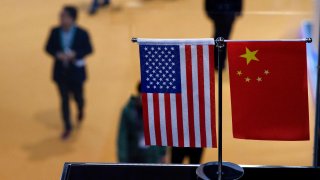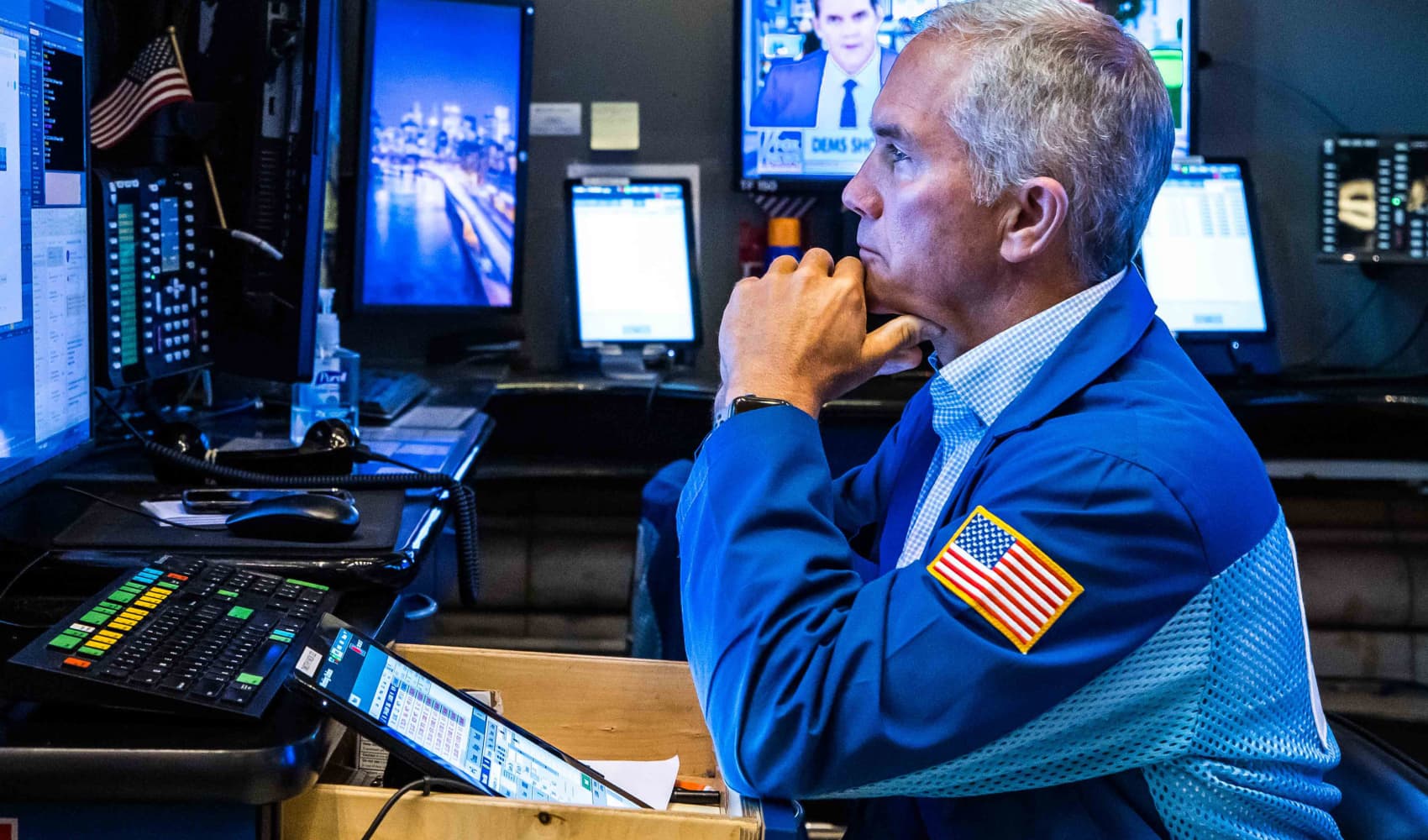
- The U.S.-China rivalry is likely to persist for some time after both countries set demands for each other that are "unreachable," said Scott Kennedy of the Center for Strategic and International Studies.
- Kennedy, trustee chair in Chinese business and economics at CSIS, made those comments after officials from the two countries concluded high-level meetings in the Chinese city of Tianjin.
- Despite deteriorating relations, Kennedy said he still expects U.S. President Joe Biden to meet Chinese President Xi Jinping at the Group of 20 summit in October.
The rivalry between the U.S. and China is likely to persist for some time after both countries set demands for each other that are "unreachable," a political analyst told CNBC on Tuesday.
Comments by Scott Kennedy of Washington D.C.-based think tank Center for Strategic and International Studies came after officials from the two countries concluded high-level meetings in the Chinese city of Tianjin on Monday.
Get DFW local news, weather forecasts and entertainment stories to your inbox. Sign up for NBC DFW newsletters.
At the meetings, Chinese officials presented U.S. Deputy Secretary of State Wendy Sherman with two lists of demands and three "bottom lines."
The Chinese requests include asking the U.S. to "correct its errors" such as by withdrawing its extradition request of Huawei CFO Meng Wanzhou, not obstructing China's development and not infringing upon Chinese sovereignty.
China is essentially asking the U.S. not to pay attention to what's happening in China and "just let China do whatever it wants," said Kennedy, who is senior advisor and trustee chair in Chinese business and economics at CSIS.
Money Report
"You can't just ask the U.S. and the rest of the international community to not have an opinion on those things and ask China to meet its commitments," Kennedy told CNBC's "Squawk Box Asia."
"I think it's going to be really hard, so we may see this relationship solidifying like a hard concrete into a rivalry which may be with us for some time," he added.
During the Tianjin meetings, Sherman raised concerns about Chinese actions that "run counter to our values and interests and those of our allies and partners, and that undermine the international rules-based order," the U.S. State Department said.
Those issues include alleged human rights abuses by China in regions such as Xinjiang and Hong Kong, as well as Beijing's aggressive behavior in the disputed South China Sea.
China considers matters in Xinjiang and Hong Kong as "internal affairs," and claims activity in the South China Sea as its sovereign right. Beijing claims nearly the entire contested water as its territory, even though a landmark international arbitration court ruling in The Hague rejected those claims in 2016.
Biden-Xi summit?
U.S.-China tensions have escalated in the last few years.
Former U.S. President Donald Trump used tariffs and sanctions in an attempt to address longstanding criticism against China — such as unequal market access, lack of intellectual property protection and forcing businesses to transfer technology in order to operate in the country.
Under President Joe Biden, the U.S. slapped sanctions on Chinese officials for alleged human rights abuses. The president also ordered a closer review of the origins of the Covid-19 pandemic, and expanded restrictions on American investments in certain Chinese companies.
Despite deteriorating relations, Kennedy said he still expects Biden to meet Chinese President Xi Jinping at the Group of 20 summit in October.
"Even if the relationship is not improved one iota, I think that these two leaders own this relationship and they want to talk to each other and explain themselves and see if there could potentially be a pathway forward," the analyst said.
"They both see themselves as global diplomats and so I expect a meeting one way or the other when the G-20 convenes."
— CNBC's Evelyn Cheng contributed to this report.






